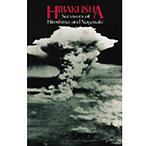The Greatest "Hiroshima" Books of All Time
Click to learn how this list is calculated.
This list represents a comprehensive and trusted collection of the greatest books. Developed through a specialized algorithm, it brings together 299 'best of' book lists to form a definitive guide to the world's most acclaimed books. For those interested in how these books are chosen, additional details can be found on the rankings page.
Genres
The "Hiroshima" category of books encompasses a range of literary works that focus on the events surrounding the atomic bombing of Hiroshima, Japan, on August 6, 1945, and its aftermath. This genre includes historical accounts, personal memoirs, survivor testimonies, and fictional narratives that explore the human, social, and political dimensions of the bombing. Books in this category often delve into themes such as the ethics of nuclear warfare, the experiences of the hibakusha (the bomb-affected people), the long-term effects of radiation on health and the environment, and the broader implications for peace and conflict in the modern world. Through various perspectives, these works aim to educate, commemorate, and provoke reflection on one of the most pivotal and devastating events of the 20th century.
Countries
Date Range
Reading Statistics
Click the button below to see how many of these books you've read!
Download
If you're interested in downloading this list as a CSV file for use in a spreadsheet application, you can easily do so by clicking the button below. Please note that to ensure a manageable file size and faster download, the CSV will include details for only the first 500 books.
Download-
1. Hiroshima by John Hersey
This book provides a detailed account of the aftermath of the atomic bombing of Hiroshima during World War II, as experienced by six survivors. The narrative follows the survivors from the moment of the explosion to their lives in the following years. It explores their struggles, their resilience, and the profound physical, emotional, and social impacts of the event, offering a poignant examination of the human capacity to endure and rebuild in the face of unimaginable devastation.
-
2. Black Rain by Masuji Ibuse
The novel is a poignant and detailed account of the aftermath of the atomic bombing of Hiroshima, as experienced by a Japanese family. Through the diary entries of a survivor and the narrative of the days that follow, the book explores the devastating impact of the bomb on the city's inhabitants, their struggle with radiation sickness, and the societal stigma they face. It delves into the physical and psychological trauma inflicted by the event, painting a somber picture of the human cost of war and the long-lasting effects of nuclear weapons on both individuals and communities.
-
3. Hiroshima Notes by Kenzaburō Ōe
"Hiroshima Notes" is a poignant collection of essays that delve into the aftermath of the atomic bombing of Hiroshima, exploring the enduring impact on the survivors and the city itself. The author, through a series of visits to Hiroshima in the 1960s, reflects on the moral and ethical implications of nuclear warfare, the resilience of the human spirit, and the responsibilities of humanity. Through interviews with survivors and thoughtful contemplation, the book provides a deep and multifaceted perspective on suffering, healing, and the quest for peace in the shadow of one of history's most devastating events.
-
4. Hibakusha by Gaynor Sekimori
"Hibakusha" is a poignant collection of testimonies from survivors of the atomic bombings of Hiroshima and Nagasaki. The book provides a deeply personal and harrowing look at the immediate and long-term effects of nuclear warfare on individuals and communities. Through a series of interviews and accounts, the survivors, known as Hibakusha, share their experiences of the bombings, their struggles with physical and psychological trauma, societal stigma, and their ongoing efforts for peace and nuclear disarmament. The narrative not only highlights the resilience and advocacy of the Hibakusha but also serves as a powerful reminder of the devastating human consequences of nuclear conflict.
-
5. Hiroshima Diary by Michihiko Hachiya
The book is a poignant and detailed personal account of the aftermath of the atomic bombing of Hiroshima, as recorded by a Japanese physician who survived the attack. The diary entries begin on August 6, 1945, the day Hiroshima was bombed, and continue for several weeks. Through his observations and experiences, the author provides a deeply human perspective on the devastation and suffering endured by the victims, as well as the immense challenges faced by the medical community. His writings not only document the physical and emotional toll of the nuclear attack but also reflect on the resilience and compassion that emerge amid such profound tragedy.
Reading Statistics
Click the button below to see how many of these books you've read!
Download
If you're interested in downloading this list as a CSV file for use in a spreadsheet application, you can easily do so by clicking the button below. Please note that to ensure a manageable file size and faster download, the CSV will include details for only the first 500 books.
Download



